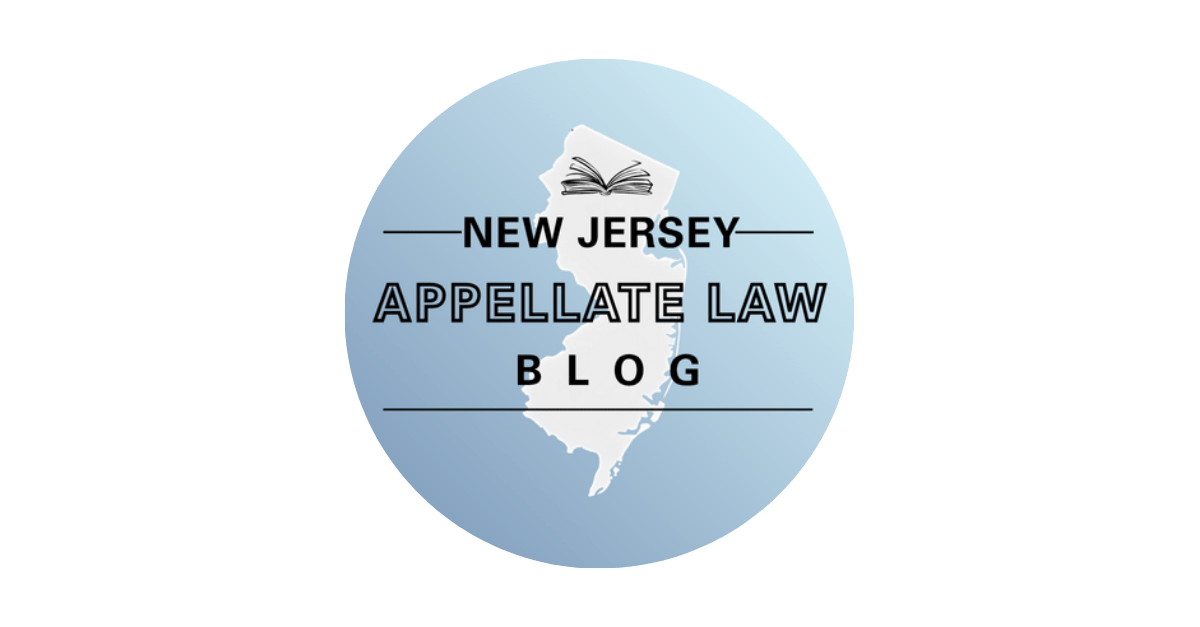Another week, another week where work for clients made it impossible to keep up with the courts. This week featured two unanimous opinions from the Supreme Court, one civil, one criminal, and both unanimous. There was also one decision from the Appellate Division, which arose out of Hurricane Sandy, a 2012 event that still shows up in court cases more than eleven years later. Here are summaries of those opinions.
DeSimone v. Springpoint Senior Living, Inc., 256 N.J. 172 (2024). This was a consumer class action that alleged violations of the Consumer Fraud Act, N.J.S.A. 56:8-1 et seq. (“CFA”). Specifically, plaintiff and the class alleged that defendants had misrepresented the terms of a “90% refundable plan,” under which an entrance fee paid by a person entering defendants’ continuing care retirement communities would be refunded if the person later left the facility or died. As relevant here, plaintiff sought a refund of all monies paid, under N.J.S.A. 56:8-2.11, a provision of a 1979 amendment to the CFA that was intended to combat misrepresentations in transactions involving food. The defense moved for summary judgment on that claim because this was not a food-related case, but the Law Division denied that motion, stating that three Supreme Court cases had treated N.J.S.A. 56:8-2.11 “broadly.” After the Appellate Division denied leave to appeal, the Supreme Court took up the case and reversed in an opinion by Justice Fasciale that applied de novo review to the legal issue presented. Applying the plain language of the 1979 amendment, the Court held that the refund provision “is limited and provides relief only to victims of the unlawful acts dealing with food-related misrepresentations proscribed in” that amendment. Justice Fasciale buttressed that conclusion with an analysis of the relevant legislative history. Finally, the Court noted that none of its prior opinions that the Law Division cited had squarely involved the subject refund provision. Each of them merely contained an “isolated” reference to that provision, as “background” for broader CFA discussions, which was “dicta” that did not compel a ruling for plaintiff here.
State v. Washington, 256 N.J. 136 (2024). In State v. Henderson, 208 N.J. 208 (2011), the Court addressed a number of issues related to the reliability and admissibility of eyewitness identifications in criminal matters. The issue in Washington was whether the rulings in Henderson should be extended to the context of lawyers meeting with witnesses to prepare for trial, a context not at issue in Henderson. In an opinion by Chief Justice Rabner that evaluated the result in Henderson and rulings in the relevant context elsewhere, the Court extended Henderson to the witness preparation for trial.
Funtown Pier Amusements, Inc. v. Biscayne Ice Cream and Asundries, Inc., 477 N.J. Super. 499 (App. Div. 2024). As Judge Smith described in his opinion for the Appellate Division in this case, the matter arose out of the aftermath of Hurricane Sandy and the need to restore power. After the storm, private property owners were directed by JCP&L, the electric utility that covered the area in this case, to have a qualified electrician inspect the electrical equipment at the property, get a permit to do necessary repairs, and have the repairs approved by a state inspector, who would then assure JCP&L that it could restore electrical service. Plaintiff got an electrician, who inspected the equipment at plaintiff’s properties, did repairs, and “installed service cables from JCP&L’s power source to the electric meters” of plaintiff. Some confusion in the remaining required steps occurred, but power was restored. A fire then broke out, and the Ocean County Prosecutor’s office concluded that the cause related to “a malfunction or failure to energize the electrical power.” Plaintiff sued a number of parties, including JCP&L. Their theory as to JCP&L was that the utility had a duty “to inspect beneath the boardwalk and ensure the superstorm had not compromised customer-owned equipment before reenergizing.” JCP&L moved for summary judgment and to bar plaintiff’s expert. The Law Division granted both motions. The Appellate Division affirmed. Applying de novo review, Judge Smith wrote that JCP&L had no such duty. The tariff that governs its operations imposed no such obligation, and statutory and caselaw on which plaintiff relied did not do so either. The panel found it improper to impose a new duty on JCP&L. Accordingly, the Law Division’s ruling was affirmed.

